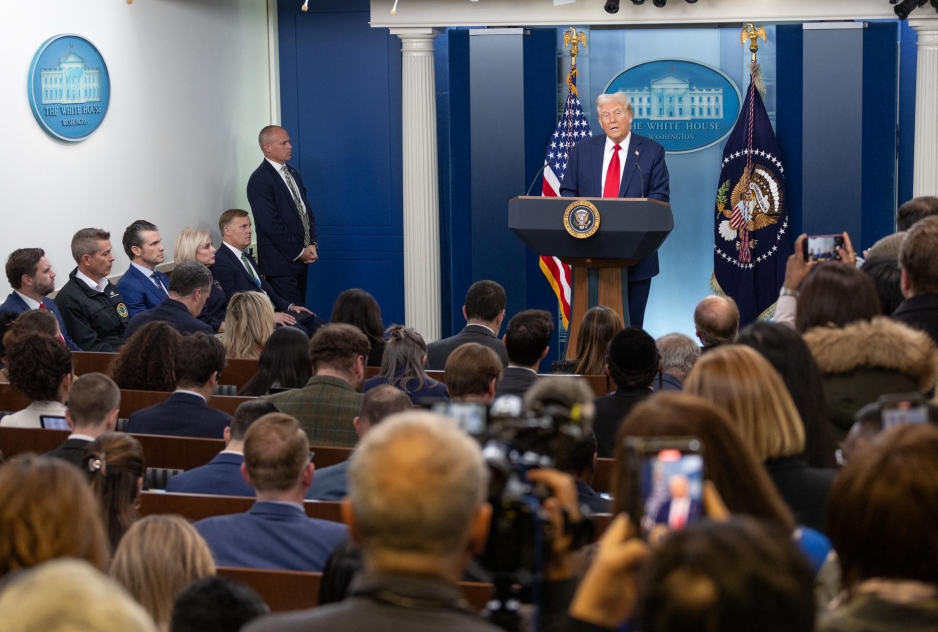The US Chinese Network reported that on Friday, the White House officially ended the “minimum limit” tariff exemption for Chinese imports worth less than $800, marking a crucial step for the Trump administration in trade policy. This adjustment restores the executive order signed by President Trump in February this year. At that time, it was postponed due to the lack of corresponding screening procedures, resulting in a chaotic situation where millions of packages were piled up in the airport cargo area.
According to the latest guidelines issued by the U.S. Customs and Border Protection (CBP), packages dispatched from the Chinese mainland and Hong Kong, China, will be uniformly subject to a punitive tariff of 145%, along with the existing tariffs. A few products such as smart phones are exceptions. These goods will mainly be handled by express delivery companies such as FedEx, UPS or DHL, which have their own cargo handling facilities.
Goods sent from China through the postal system and valued at no more than 800 US dollars will face different handling methods. Currently, a tariff of 120% of the package’s value needs to be paid, or a fixed fee of 100 US dollars per package is charged. By June, this fixed fee will rise to 200 US dollars.
A spokesperson for CBP said that although the agency “faces a tough task”, it is ready to implement the presidential executive order. The new measures will not affect the customs clearance time for ordinary passengers as the relevant packages are handled separately in the airport’s cargo area.
This policy shift poses a significant challenge to cross-border e-commerce platforms, especially Chinese online retailers like Shein and Temu that focus on low-price strategies. They previously relied heavily on “minimum limit” exemptions to avoid taxes, and now they will face high tariff pressure for the first time. According to analysis, if all the tax burdens are passed on to consumers, the price of a T-shirt originally priced at $10 May rise to $22, and a set of suitcases priced at $200 May increase to $300. A case provided by Bloomberg shows that a kitchen cleaning towel on Shein soared from $1.28 to $6.10, an increase of up to 377%.
It is reported that in response to the new policy, Temu has completed the upgrade of its platform system in recent days, and the product display interface has been fully switched to the priority display mode of local warehouses. At present, all direct mail products from China are marked as “temporarily out of stock”.
A spokesperson for Temu confirmed to CNBC that as part of the company’s efforts to improve service levels, all of its sales in the United States are now handled by local sellers and completed “domestically”.
The spokesperson said, “Temu has been actively recruiting American sellers to join the platform. This move aims to help local merchants attract more customers and develop their businesses.”
Although the increase in tariffs may not be immediately reflected in the official inflation data, economists warn that American households will feel the impact directly. Ubs economist Paul Donovan pointed out: “Tariffs are actually a kind of consumption tax, which is borne by American consumers rather than exporters.”
This change also poses challenges to the global supply chain. Kate Muth, executive director of the International Postal Advisory Group (IMAG), said: “We are still not fully prepared to deal with these changes, especially in aspects such as how to determine ‘origin in China’, where there are still a lot of details to be clarified.” Logistics providers are concerned that due to limited screening capabilities, there will be bottlenecks. Some analysts predict that the volume of mini parcel freight sent from Asia to the United States will drop by as much as 75%.
According to data from the US Census Bureau, in the first few months of 2024, the total value of low-value goods imported from China reached 5.1 billion US dollars, making it the seventh largest category of goods imported by the United States from China, second only to video game consoles and slightly higher than computer monitors.
It is worth noting that CBP has also adjusted a policy, allowing goods from the Chinese mainland and Hong Kong with a value of no more than 800 US dollars, as well as goods from other regions with a value of no more than 2,500 US dollars, to undergo informal customs declaration procedures without the need to provide tariff codes and detailed commodity descriptions. This move is aimed at alleviating the operational difficulties of freight enterprises, but it has also sparked controversy. Lori Wallach, director of Rethink Trade, an organization advocating for the cancellation of exemption policies, said: “Without electronic processing or HTS codes for goods, the customs system will have difficulty effectively screening and prioritizing high-risk goods.”
Post time: May-15-2025
